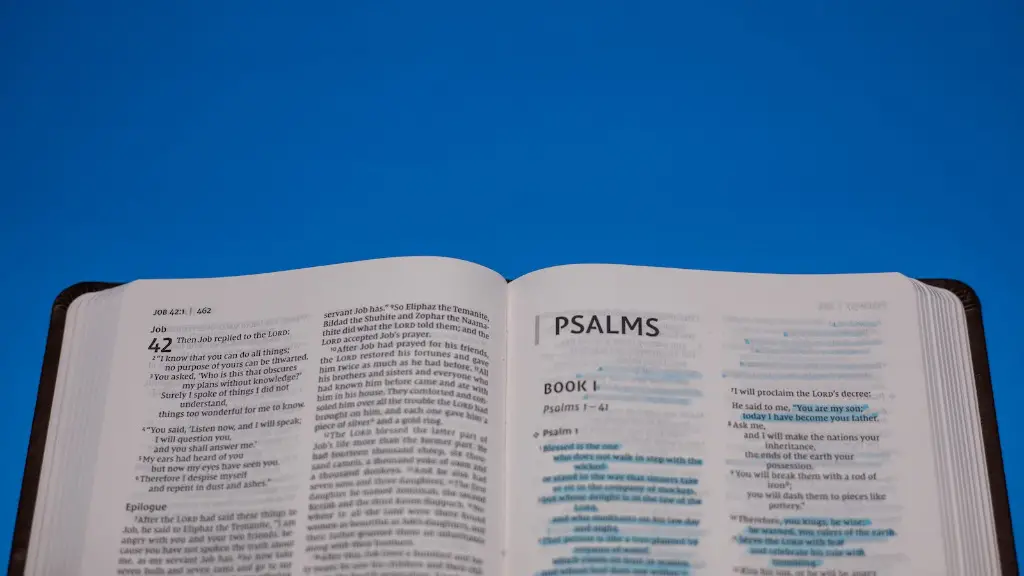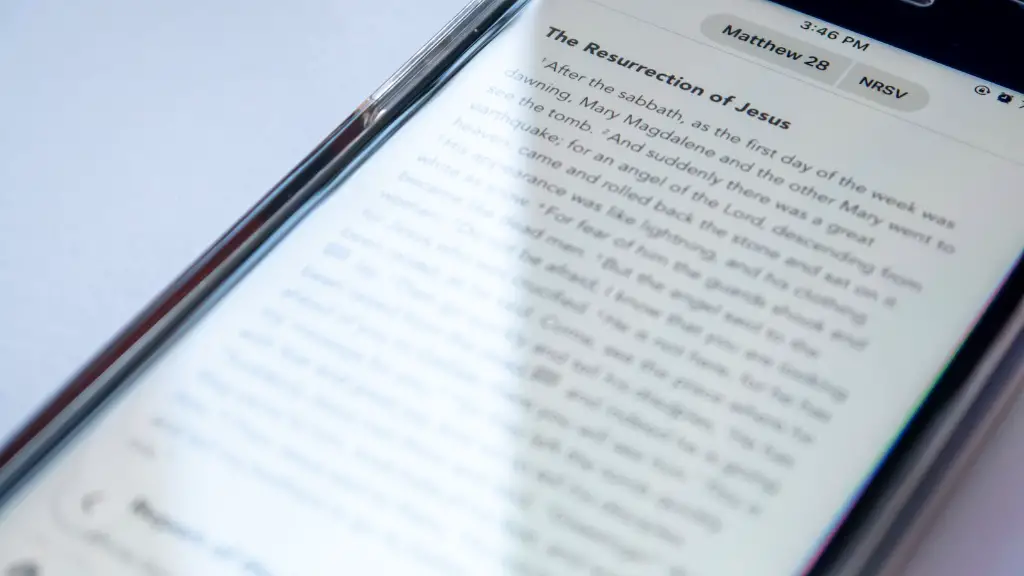Alcohol in the Bible
Alcohol is mentioned over 70 times in the Bible. Typically, it is referred to as strong drink. The Bible’s authors viewed alcohol as either a blessing or a curse. Certain uses of strong drink were praised in the Old and New Testaments, while others were condemned. To better understand why, we must look at the culture of the time and how religious perspectives have changed over the years.
In ancient times, beer and wine were often safer to consume than water due to the bacterial quality. Most people drank it every day as part of their diet. It was also used medicinally to relieve pain and anxiety. As such, it was regarded as a gift from God in many cultures.
In the Old Testament, alcohol is often praised. Not only are some of the most important figures in the Bible seen using strong drink, like Noah and Lot, but Solomon advised to: “Give strong drink to one who is perishing, and wine to those in bitter distress” (Proverbs 31:6). Thus, it had a ceremonial importance and often was used in religious rituals. However, in some cases, it was also condemned. For example, in Leviticus 10:9 it says: “Do not drink wine or strong drink, you, nor your sons with you, when you go into the tabernacle of the congregation, lest you die” and in Habakkuk 2:15 it states: “Woe to him who gives drink to his neighbor, pouring it from the wineskin till they are drunk, so that he can gaze on their naked bodies!” These passages show that irresponsible or immoral behavior related to alcohol was not tolerated.
In the New Testament, the use of strong drink is discouraged rather than outright forbidden like it was in the Old Testament. Jesus’ turning water into wine was an affirmation of its importance for society, as it provided an alternative to drinking contaminated water. He also warned against drunkenness by saying: “Do not be drunk with wine, for that is debauchery” (Ephesians 5:18). This was a common statement from Jesus and the other Apostles, showing their wary relationship with strong drink.
However, despite the Bible’s overall admonishments, modern religious views on alcohol have been much more relax. Most denominations across Christianity and Judaism now allow the use of moderate amounts of alcohol as long as it is done responsibly. They cite that since Jesus himself used alcohol and did not condemn it in and of itself, it can be an acceptable part of a believer’s lifestyle.
It is clear that strong drink has had a shifting place in the Bible. It has been seen in both a positive and negative light depending on how it is used. Because of this, it is important to consider the cultural context of the Bible when looking at strong drink and its place in history. The same is true for figuring out how it applies to our lives today.
Alcoholic Beverages in the Bible
Although rarely spoken about, there are several alcoholic beverages mentioned throughout the Bible. Here, we will explore what these words mean and how they were used in Biblical times:
One of the most commonly referred to strong drinks is wine. It is mentioned over 213 times throughout the Bible. In earlier texts, wine was widely used in religious ceremonies and was seen as a blessing from God. By the time of the New Testament, it was still a major beverage consumed by society. In the parable of the wedding feast in Luke 14:15, it is recorded that when a guest doesn’t turn up, the master says: “Go out quickly to the streets and lanes of the town and bring in here the poor and crippled and blind and the lame” (Luke 14:21). This shows that in the first century A.D. wine was plentiful and widely available.
In addition to wine, fermented drinks such as beer and mead are also mentioned in the Bible. Beer is spoken about 12 times, usually in relation to festivals or offerings made to God. On one occasion, when David was on the run from Saul, he was offered a drink from Ahimelech the priest. “[Ahimelech] gave him the sword of Goliath the Philistine, and a loaf of bread and a skin of wine and a block of pressed figs” (1 Samuel 21:8). Here, it is clear that both wine and beer were common beverages.
Mead, on the other hand, was a rarer drink in the Bible. It was usually used as a metaphor to describe joy, as in the book of Proverbs: “You know that your wife is your best friend; and there is nothing like the joy of living with her. Drink your fill of mead, my son, and be filled with gladness at her side” (Proverbs 31:23). It was highly valued in ancient times and was typically mixed with honey and other ingredients to produce a sweet and potent beverage.
Strong Drink and Moderation
When looking at alcohol in the Bible, there are two important lessons that stand out. The first is that moderation is essential. In Proverbs 23:20, it says: “Do not join those who drink too much wine or gorge themselves on meat”. While it’s not condemning all uses of strong drink, it’s clear that there should be a balance. Abusing alcohol will lead to physical and spiritual suffering, which is a lesson that is echoed in many other passages throughout the Bible.
The second lesson is that alcoholism should be avoided. As we have seen, certain passages condemn drunkenness, particularly the misuse of strong drink. We should remember this when considering our own consumption and be sure to remain in control of our drinking habits.
Overall, strong drink has had a complex relationship with the Bible. Its place has changed over time and certain uses are considered more morally acceptable than others. When consuming it, we should keep moderation in mind and remember that it can lead to negative consequences if abused.
The Consequences of Overindulgence
The Bible generally takes a conservative view on strong drink and warns us of the consequences of overindulgence. In some cases, it explicitly condemns drunkenness and the misuse of alcohol. In Proverbs 23:27-34, we read: “A man with too much wine causes pain, and not just the next morning…Instead, look for someone with a sense of responsibility, wise and sober. Have wine with your dinner, but drink water with your lunch.”
These verses are a powerful reminder of the dangers of alcohol and why moderation is key. Not only do we suffer physical consequences, such as hangovers and intoxication, but spiritual ones as well. Intoxication leads to a loss of control and can quickly lead to sin. In 1 Peter 4:3 it says: “You have spent enough time in the past doing what pagans choose to do – living in debauchery, lust, drunkenness, orgies, carousing and detestable idolatry”. This shows that drunkenness is an affront to God and should be avoided.
Thus, although the Bible does not explicitly forbid all uses of strong drink, it does warn us of the potential consequences of overindulgence. We should be mindful of this and be sure to use alcohol responsibly.
Alcohol and Scripture
The Bible’s relationship with strong drink has been complex. It has been praised in some cases, while other passages warn us against its misuse. In general, it is seen as a gift from God, if used responsibly.
When looking at what the Bible says about alcohol, it’s clear that personal responsibility and self-control need to be taken into account. Moderation is essential in order to keep alcohol consumption from becoming a sin. We should strive to behave with discretion and only use it in moderation.
We also need to remember that the way the Bible views strong drink is closely tied to its cultural context. While certain aspects have stayed the same throughout the ages, views on drinking and its place in society have changed over time. Thus, it’s important to keep an open mind and understand the unique perspectives that are represented in the Bible.
Key Takeaways
Ultimately, the perspective of the Bible on strong drink is demonstrated through how it is used in each match. Whether it is praised or condemned depends largely on the context in which it was used. In order to understand it, we must look at the culture of the time and how religious perspectives have changed over the years.
When considering our own use of alcohol, we should be mindful of the Bible’s warnings. We should stay in control of our drinking habits and only consume it in moderation. Prudence and discretion will help us avoid any spiritual consequences that may arise from irresponsible use.
By following the Bible’s advice and using strong drink responsibly, we can enjoy its benefits without falling into the dangers of overindulgence.





